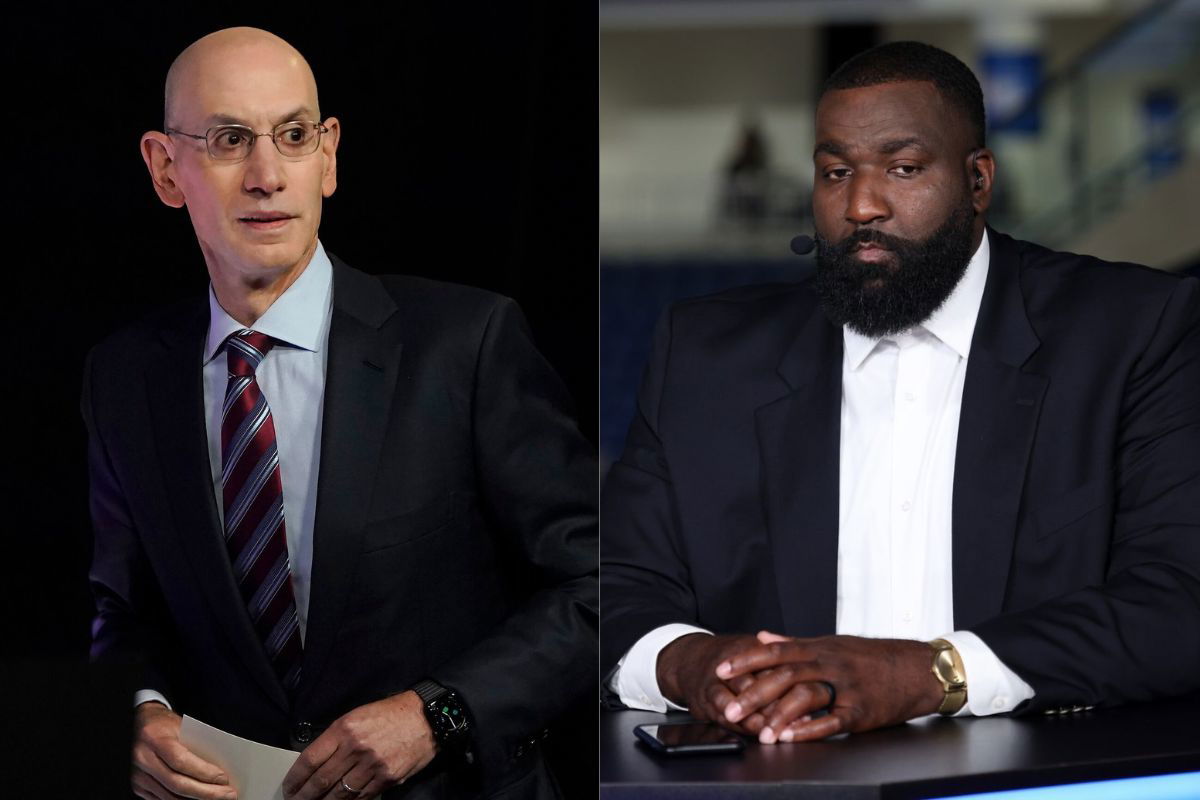
Imago
Credits-X

Imago
Credits-X
What Kobe Bryant saw coming a decade ago is now crystal clear. The old model isn’t working. Europe is rising, and the NBA is going with it. Bryant called out AAU culture and praised European fundamentals back in 2015, “We’re not teaching players how to play all-around basketball. That’s why you have Pau [Gasol] and Marc [Gasol]… They have more skills.” Today, it’s Giannis Antetokounmpo’s 30.4 points per game and Nikola Jokic’s stellar rise in the big league. And while many fans celebrate the global nature of the game, Kendrick Perkins, never one to mince words, just sent a warning to the entire American basketball system.
Watch What’s Trending Now!
With Luka Doncic, Domantas Sabonis, and even a still-developing Victor Wembanyama also a part of the list, the balance of power in basketball is shifting. On a recent episode of Road Trippin’, Kendrick Perkins let loose. The NBA veteran and analyst looked straight at the current state of American youth basketball and called it for what it is, lacking. “The NBA being global. It doesn’t help American basketball players,” Perkins said. As the league becomes more international, competition from overseas is increasing, and American players are falling behind in terms of development and preparedness.
The NBA veteran shares a personal experience to highlight this gap. While attending an AAU tournament, he noticed a lot of raw talent on display. But what stood out to him even more was the chaotic, misguided environment surrounding these players. Parents and family members were loudly hyping up their kids, fixated on individual stats and rankings. Perkins says that many of these families don’t realize just how far behind their kids might be in comparison to their international counterparts. While Americans are focused on surface-level achievements, there are “six Wembys in France,” already being developed, in more structured and disciplined systems.
ADVERTISEMENT
And Perkins wasn’t being metaphorical. He’s genuinely concerned that European development systems are simply ahead, technically, mentally, and even professionally. “They probably have about seven in each class. Seven Lukas and Jokics out there that we don’t know about… you probably won’t hear about them until your kid is actually a senior. And then in Africa, they probably got the Basketball Africa League.” Former teammate and fellow analyst Richard Jefferson backed him up, as he added, “They’re looking for those Embiids and those Giannises and those Pascal Siakams. They’re looking for them.”
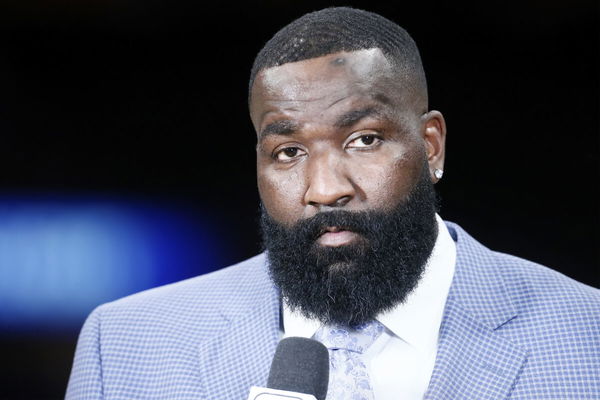
Getty
LOS ANGELES, CA – DECEMBER 25: A close up shot of Kendrick Perkins on court before the LA Clippers game against the Los Angeles Lakers on December 25, 2019 at STAPLES Center in Los Angeles, California. NOTE TO USER: User expressly acknowledges and agrees that, by downloading and/or using this Photograph, user is consenting to the terms and conditions of the Getty Images License Agreement. Mandatory Copyright Notice: Copyright 2019 NBAE (Photo by Chris Elise/NBAE via Getty Images)
These athletes, all international stars, have become household names in the NBA because of their size, skill, work ethic, and professionalism. Jefferson’s point is that the league is no longer just looking inward, it’s looking globally, and it’s finding top-tier talent outside the U.S. Perkins takes it further, with the last six years of MVP awards as undeniable proof.
ADVERTISEMENT
Every winner, whether it’s Nikola Jokic, Giannis, or Joel Embiid, has been an international player. This, he says, points to a clear gap in how players are being developed around the world compared to those in the U.S. He describes it as a “separation of development.” Foreign players are coming into the league more polished, more mature, and better prepared for the professional level.
Perkins notes the difference in professionalism. Jokic is known for his quiet demeanor and focus on the game. Giannis is light-hearted and humble. Shai Gilgeous-Alexander maintains a clean image and steady commitment to his craft. Perkins contrasts this with what he sees in many American prospects, too much hype, too little discipline. He addressed the young American athletes,
ADVERTISEMENT
“Get your s__t together.” Jefferson reinforced the warning with a stark prediction, “Heed the warning of the professionals. We’re telling you— the NBA can look very different. If there’s 30% Europeans, in 20 years, it could be 50% Europeans.” He reminds everyone that while the NBA is an American league, it’s still about the best basketball players in the world, and nationality doesn’t protect a spot if the skills aren’t there.
Adam Silver’s European League plan awaits green signal
Meanwhile, Perkins’ passionate plea comes at a time when NBA Commissioner Adam Silver is actively laying the foundation, a full-fledged European league backed by the NBA and FIBA. Silver, along with deputy commissioner Mark Tatum, has been in Europe meeting with a wide range of stakeholders. From Real Madrid officials in Paris to equity firms in London to basketball clubs across the continent.
ADVERTISEMENT
The discussions, described by insiders as private but far-reaching, are about establishing a new league that could feature 12 permanent teams and four rotating wild-card spots.
And it’s more than just talk. The NBA has already announced that regular-season games will be played in Berlin and London starting in January 2026. With future games planned in Paris and Manchester through 2028. The Orlando Magic and Memphis Grizzlies will headline the first wave, with the Magic featuring German brothers Franz and Moritz Wagner, a nod to the league’s European push. “To have the Orlando Magic and the NBA play a regular-season game in our hometown of Berlin means everything to us,” said the Wagner brothers in a joint statement.
Top Stories
Ex-ESPN Anchor Calls Out a Hidden Caitlin Clark Problem Few Are Acknowledging

Who Is Mark Aguirre’s Wife? Everything to Know About Ex-Mavericks Star’s Marriage and Family
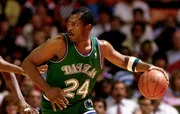
Warriors Announce Giannis Antetokounmpo Trade Plan – 3 Teams That Can Match the Offer Ft. Knicks
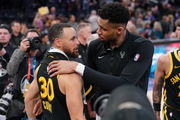
Caitlin Clark Fans Reignite Old Beef With Warriors’ Brandin Podziemski After Viral Moment
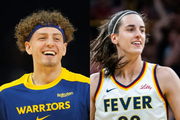
Was Jaylon Tyson Fined $35K for Disrespecting LeBron James? Fact-Checking Viral Rumor
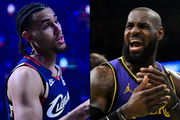
But Silver’s ambitions go further than occasional games. Real Madrid’s involvement, in particular, signals something much bigger. Their EuroLeague license expires in 2026, and sources believe if they jump ship, others like Barca, ASVEL, and Fenerbahce could follow. Talks are already in motion with clubs like Alba Berlin, who recently left the EuroLeague to join FIBA’s Basketball Champions League, seemingly aligning with Silver’s vision.
ADVERTISEMENT
Silver’s pitch is clear: tap into Europe’s estimated 270 million basketball fans and a $20 billion media market. It’s also a response to the reality Perkins pointed out. European development systems are producing MVPs. Silver wants to institutionalize and profit from that growth.
ADVERTISEMENT
ADVERTISEMENT
ADVERTISEMENT